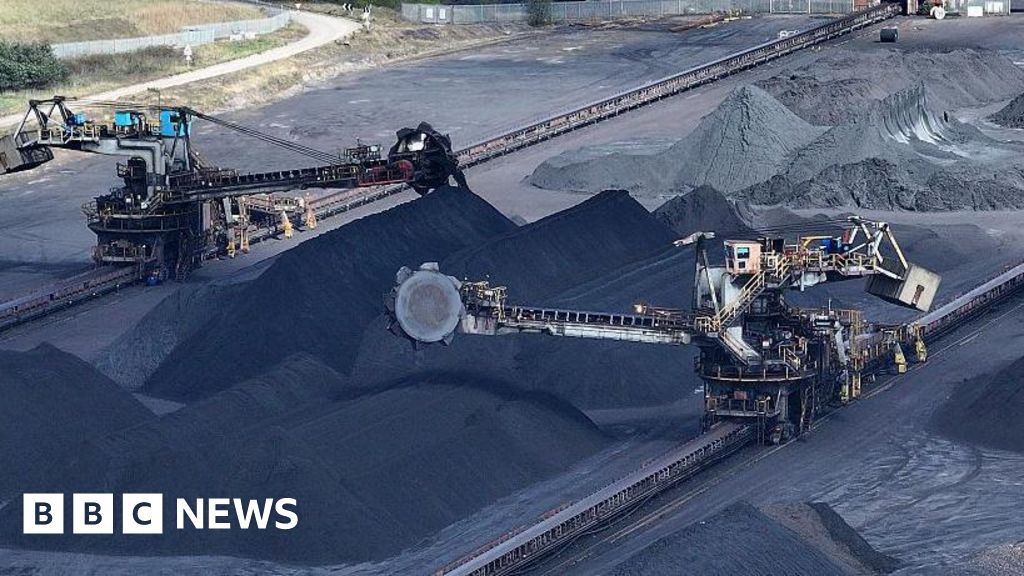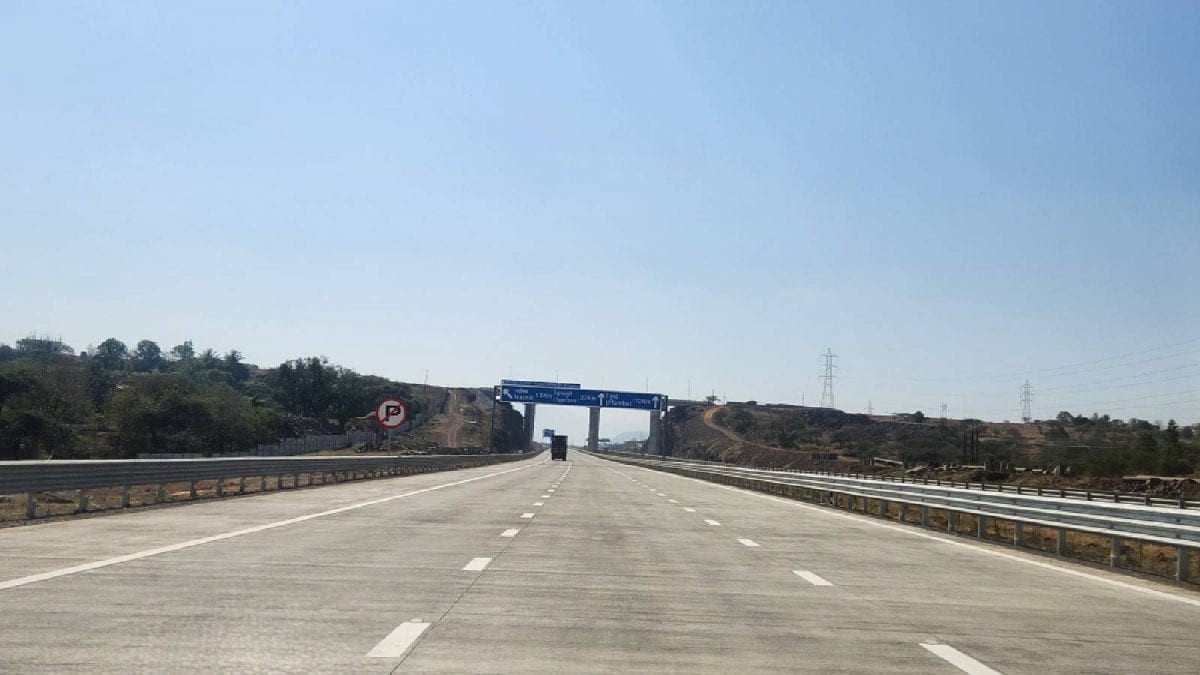British Steel Saved from Collapse: U.S. Coal Arrives as Government Intervenes
Table of Contents
- 1. British Steel Saved from Collapse: U.S. Coal Arrives as Government Intervenes
- 2. Urgent Action Prevents Furnace Shutdown
- 3. Government Officials Confirm Supply Chain Security
- 4. The Critical Importance of Virgin Steel
- 5. Union Applauds Government Intervention
- 6. China Accuses UK of Politicizing Trade
- 7. Future of British Steel Uncertain
- 8. balancing Trade with National Security
- 9. U.S. Steel Industry at a Glance
- 10. Archyde News Interview: Expert Analysis on British Steel Rescue
By Archyde News
Published: October 26, 2024
Urgent Action Prevents Furnace Shutdown
Averted crisis at British Steel’s Scunthorpe plant as the government secured the critical delivery of coking coal and iron ore from the United States. The materials arrived at Immingham docks on Tuesday, October 22nd, and where swiftly transported to the Scunthorpe site, staving off the immediate threat of furnace shutdowns.
Simultaneously, a separate shipment of vital materials from Australia, previously entangled in a legal dispute over ownership between the government and British steel’s owner, Jingye, is now en route to the UK after the dispute was successfully resolved. This multi-pronged approach underscores the urgency and complexity of the situation.
The British government’s intervention, which included temporarily seizing control of British Steel over the weekend, followed a breakdown in negotiations with Jingye amid mounting concerns that the Chinese company was planning to shutter the furnaces. This drastic measure highlights the strategic importance of British Steel to the UK economy and national security, mirroring similar concerns in the U.S.regarding domestic steel production.
Government Officials Confirm Supply Chain Security
Industry Minister Sarah Jones confirmed the arrival of the U.S. shipment at Immingham. Business Secretary Jonathan Reynolds personally visited the port in North East Lincolnshire on Tuesday to oversee the transfer of raw materials to British Steel, demonstrating the government’s hands-on approach to resolving the crisis.
According to Jones, “We have other shipments coming from the U.S., from Australia and orders from Sweden so we are in a steady state in terms of the operation of those two blast furnaces.” She emphasized the government’s commitment to securing a stable supply chain for the Scunthorpe plant.
The government has stated that the initial shipment from the U.S. provides enough material to sustain the furnaces for the coming weeks, while officials work to establish a reliable, long-term supply chain. This proactive approach aims to prevent any future disruptions that could jeopardize British Steel’s operations.
The Critical Importance of Virgin Steel
The potential consequences of allowing the blast furnaces to go cold were dire. Without fuel, restarting the furnaces would be an extremely difficult and costly undertaking, effectively eliminating the UK’s capacity to produce “virgin steel.” “Virgin steel-making involves iron being extracted from it’s original source to be purified and treated to make all types of steel used in major construction projects, such as new buildings and railways.”
The U.S. steel industry faces similar challenges. The ability to produce virgin steel is crucial for infrastructure projects, national defense, and various manufacturing sectors. Reliance on foreign imports can create vulnerabilities in the supply chain, as highlighted by recent global events.
The government has covered the cost of the raw materials from existing budgets. Jones stated, “We have a £2.5bn fund for steel within the Department for business so we won’t be drawing down on any extra resources and people can be reassured of that.” This financial commitment underscores the government’s determination to support the steel industry.
Union Applauds Government Intervention
Union officials have reported that the plant, which employs 2,700 people, is in a “far better position” because of the government’s intervention. This sentiment reflects the relief and optimism among workers who feared potential job losses and economic hardship.
Looking ahead to the plant’s future ownership, Jones stated, “We are hoping, as you know, to bring in a private sector partner as part of the future of scunthorpe but those conversations are ongoing.” This indicates the government’s preference for private investment in British Steel while maintaining a degree of oversight to protect national interests.
China Accuses UK of Politicizing Trade
Beijing has criticized the British government’s actions, accusing it of “politicising trade co-operation” and suggesting that the intervention at British Steel has raised concerns about investment in the UK. These comments reflect the growing tensions between China and the West over trade practices and strategic industries.
An emergency law was swiftly passed through parliament on Saturday, granting the government control of the site to prevent Jingye from shutting down the furnaces against the wishes of ministers. This decisive action underscores the government’s commitment to safeguarding British Steel’s operations, regardless of external pressures.
The situation has ignited debate about Chinese investment in industries considered strategically critical by the government. This debate mirrors similar discussions in the U.S., where concerns have been raised about foreign ownership of key infrastructure and sensitive technologies.
Future of British Steel Uncertain
While the government has stopped short of fully nationalizing british Steel, it has not ruled out this option while also actively seeking potential private investors to fund operations. This reflects the government’s desire to find a sustainable solution that balances private sector efficiency with national security considerations.
Two long-standing British Steel employees have been appointed to manage the plant on an interim basis, providing leadership and stability during this period of transition. This move demonstrates the government’s confidence in the expertise and dedication of the existing workforce.
In March, Jingye reported that the Scunthorpe site was losing £700,000 a day, deeming it “no longer financially sustainable.” The company initiated consultations on potential job cuts,raising concerns about the plant’s long-term viability. Talks between officials and Jingye ultimately failed to produce a breakthrough.
The government claims that Jingye rejected an offer of £500 million in public funds to help keep the furnaces running, demanding more than twice that amount with limited guarantees about the plant’s future. “We were working in good faith on what we thought was a good deal on the table,” said Jones.
Jones added, “That relationship broke down when, in the middle of a consultation about the future of the site, they refused to buy the raw materials to keep that site going. that was an act of bad faith and that’s why we had to intervene in the way that we did.” these statements underscore the government’s frustration with Jingye’s actions and its determination to protect British Steel’s operations.
balancing Trade with National Security
Regarding future relations with China, Jones stated that the UK will be “pragmatic,” recognizing that “hundreds of thousands” of British jobs rely on trade between the two countries. Though, she emphasized that “We have very stringent tests that ensure we are safe and secure and we will continue to apply those tests” when it comes to Chinese investment in critical infrastructure. This balanced approach reflects the complexities of navigating economic opportunities while safeguarding national interests.
U.S. Steel Industry at a Glance
| Metric | U.S. Data (2023) | Context |
|---|---|---|
| Crude Steel Production | ~80 million tons | Fluctuates based on economic conditions and global demand. |
| Steel Imports | ~25 million tons | Major sources include Canada, Mexico, and increasingly, countries in Asia. |
| Jobs in Steel Industry | ~500,000 (direct & indirect) | Significant economic impact, particularly in states like Pennsylvania, Ohio, and Indiana. |
| Key Challenges | Aging infrastructure, global competition, environmental regulations | Requires ongoing investment and innovation to remain competitive. |
Archyde News Interview: Expert Analysis on British Steel Rescue
Archyde news Editor, [Your Name], speaks with Dr.Eleanor Vance, an economist specializing in international trade and industrial policy, to discuss the recent government intervention at British Steel.
Published: October 27, 2024
Archyde News: Dr. Vance, thank you for joining us. The situation at British Steel seems to have resolved, with U.S. coal arriving and the government stepping in. What’s your overall take on the importance of these events?
Dr. Vance: Thank you for having me. The government’s intervention is critical. British Steel’s survival is vital for the UK’s economy and national security. The immediate arrival of U.S. coking coal, along with resolving the dispute to ensure the raw materials from Australia can reach the UK is a huge relief. The production of virgin steel is a essential part of any developed industrial economy.
Archyde News: The article mentions the importance of “virgin steel.” Can you elaborate on why that’s so crucial, particularly from a national viewpoint?
Dr. Vance: Virgin steel, made directly from iron ore, is essential for infrastructure and construction. it underpins our ability to independently build everything from railways to major buildings. Reliance on imports creates vulnerabilities. Steel plays a key part in national defense, impacting everything from shipbuilding to vehicle manufacturing.
Archyde News: The government’s actions included temporarily seizing control and using existing funds. What are the economic implications of this, and what’s the impact of the UK taking action simultaneously occurring as concerns around the U.S. steel industry?
Dr. Vance: The move to use existing funds shows the cost is manageable. It is significant that the U.S. steel industry is facing similar challenges with their own infrastructure. These types of supplies are vital so that the country does not have to rely on global imports from other trading nations. The U.K.’s focus on infrastructure jobs and national defense, mirrors similar concerns in the U.S., it also shows the government’s commitment to supporting industry. The risk is that prolonged intervention without a clear strategy could become expensive. The success now depends on securing a lasting supply chain.
Archyde News: Looking at the broader picture, how does this episode reflect rising trade tensions between the UK and China, and what are the wider implications?
Dr. Vance: The Chinese criticism reveals tensions over trade. concerns about China’s investment in strategic sectors are growing. The UK’s response,while pragmatic,highlights the balancing act between economic benefits and national security. It mirrors debates in the U.S. and elsewhere. This is a key area of concern.
Archyde News: The government aims for a “pragmatic” approach to China. What does a accomplished long-term strategy look like in this context?
Dr. Vance: A successful strategy will involve carefully calibrated measures. The UK will need to balance trade with, robust due diligence on investment, ensuring compliance with safety standards. A clear industrial strategy focused on security might involve incentives to attract those investors that the U.K. want.
Archyde News: The future of British Steel’s ownership is still uncertain. What are the challenges here,and what should the government prioritize going forward?
Dr. Vance: The challenge is finding investment that can meet all of the country’s needs. They could find that they lose control. The government needs to ensure a supply of resources in the immediate future and find a sustainable investor. This is a really critical moment.The government must remain vigilant about protecting the workforce and prioritizing a sustainable, long-term, steel-making supply chain.
Archyde News: Dr. Vance, considering both the UK and possibly international issues, what is the most significant lesson that can be drawn from this British Steel crisis?
Dr. Vance: The primary lesson is that strategic industries require proactive government support. The ability to be self-reliant on essential materials and supplies is of vital national importance. This applies not only to the UK but also to partners and trading allies who want to maintain their independence. This applies to all of the vital things we do in our daily lives.
Archyde News: Dr. Vance, thank you for your insights.
Dr. Vance: Thank you for having me.
Archyde News invites readers to share their thoughts: Do you think the government’s intervention was the right move, and what other industries might face similar supply chain challenges? Share your opinions in the comments below!








